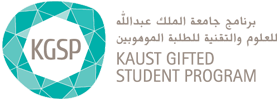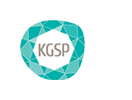Alumni Profile: Mariam Awlia
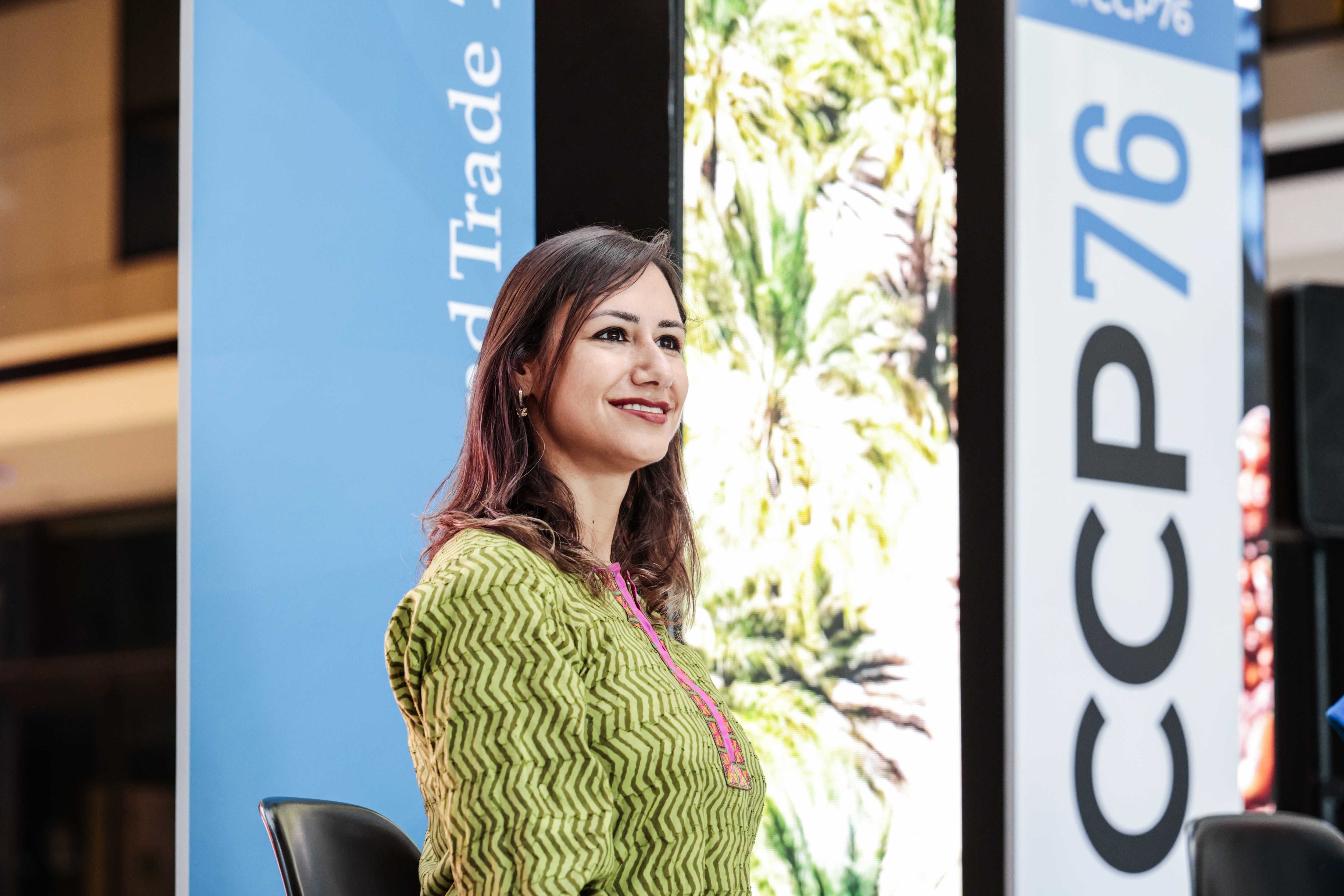
This Q&A highlights the journey of Dr. Mariam Awlia, a KGSP alumna who has transformed her academic background into a career at the United Nations’ Food and Agriculture Organization (FAO). Growing up in Jeddah with a multicultural heritage, Mariam’s passion for science led her to the KGSP, where she studied biochemistry at University College London before pursuing her postgraduate degree in Plant Science at KAUST. She leveraged her skills at FAO, focusing on sustainable food value chains. In our conversation, Mariam reflects on her KGSP experience, her drive for humanitarian impact, and her role in global food security.
Where are you and your family from?
I'm from Jeddah, born and raised by the Red Sea. I have a mixed Middle Eastern heritage. My father’s family is originally Turkish with a hint of Tunisian blood. My mother’s side is from an old tribe that originates from the Arabian Peninsula, which was mixed with Palestinian and Iranian blood.
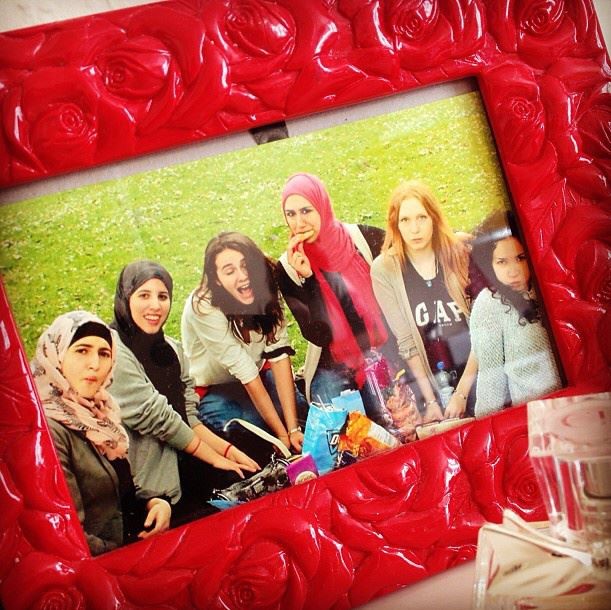
Mariam (red scarf) and her fellow UCL Students
Can you tell the story of how you started with KGSP?
In the 11th grade, I was nominated to receive a scholarship to study AP Chemistry at the University of Maryland during the summer. I asked my father in the sweetest voice I could muster, "Baba, please, do you mind if I go?” He looked at me gravely and said, "I don’t know, it’s not safe. How could you go alone?" Fortunately, there was an option to complete the course online, so I decided to accept my fate and work with what I was given.
A week later, my father stormed into the house, furious to have heard that all girls were not allowed to travel anymore. "But Baba, you didn’t want me to go," I exclaimed. He replied with indignation, "Mariam, not because you're a girl…
"Still, I committed myself to completing the course. It was during Ramadan, so I had to submit exercises, watch videos, and complete the classes before breaking my fast. Not sure if this is truly the case, but it seems that since I had successfully finished that course, my name was listed for the KGSP scholarship the following year.
I received a phone call out of the blue from Aramco saying, "Mariam, you've been listed for a scholarship that is part of a new program entitled KGSP. Would you like to be sponsored by this upcoming new Saudi postgraduate university (KAUST) in the field of science and technology, which hasn't been built yet, and be sent abroad to complete your undergraduate studies and then be sponsored to return to do your MSc at KAUST?” I was shocked to hear this.
Again, I went to my father, and this time, my mother was present as well. With an open mind and heart, I said, "Look, I know last year I asked you about the scholarship to go to the US, but hey, I got this other one, and I would be sponsored to by a new Saudi university to pursue both a BSc and a MSc degree. This might be an opportunity of a lifetime." My mother really vouched for me and said, "She's been given these amazing opportunities, let's support her."
Hence, we moved to the UK, and I initially stayed there for the foundation year in a small town called Royal Leamington Spa with my three female KSGP fellows. At the time, we applied to universities in both the US and the UK. Even though I got into Boston University, I had two options: move to London and study, and be closer to family, or experience another radical adventure in the US. I leaned towards the UK. So, I went to University College London, and I spent three years there studying biochemistry.
Because you were in the first cohort of the KGSP, you didn’t have any older students to ask about the program, get advice, or have any clear expectations. Why did you take the leap to join the KGSP?
I have an immediate answer. I didn’t want to be a regular Saudi girl.
At the time, Aramco was the one leading the building of KAUST, and things were still up in the air. There weren’t many clear indicators of when, where, or how. My dad kind of nudged me and said, "You should go and apply at the local university. Didn’t you want to be a doctor?"
I went to the local university, King Abdulaziz University, and I had my diploma in my reach. I stood there and thought, "I don’t want to go. I don’t want to apply." I did a little prayer: “If this adventure that will change the whole trajectory of my life is better for me, can you please make that work, and let things fall into place?" And that’s what happened. I never looked back. The fact that I live here in Rome now is a testament to that. I think it’s also a matter of self-motivation. I want to be active, and I want to have an impact. And that’s what brought me to KGSP.
At the time, I had stars in my eyes, like, "Wow, what is this? What’s going to happen?" And of course, when you’re 18 or 19, out of the country, and you never thought you would have this experience, it’s exciting. We were grunting through all the coursework, but those were golden years for me.
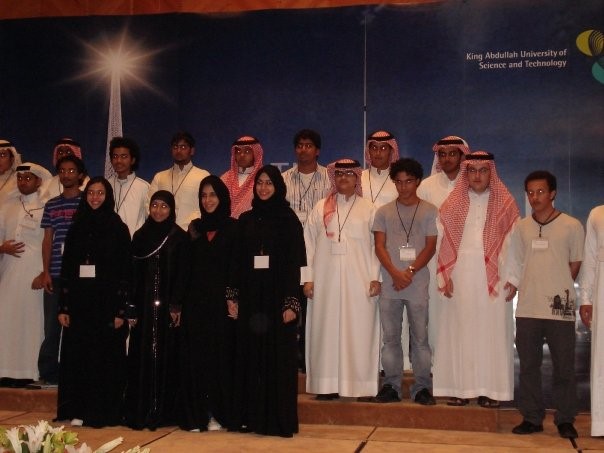
The first ever KGSP Cohort
What sort of enrichment opportunities did you participate in while with KGSP?
I love the fact that KGSP has a lot of support for students, and they would find different opportunities for us. In the final year of my studies in London, it was the 2012 London Olympics. At the time, I wanted to escape London because it was so busy. I got an internship in Rome at a university called "La Sapienza," which means "wisdom."
It was the very first time I had traveled alone, and I didn’t speak the language of the country I was visiting. I asked my parents, "So, I got this internship in Rome. What do you think? I’m afraid to go by myself. Do you want to come and join me, or should I not go?" They said, "Go. There’s no harm in going to Italy, besides just getting fat!"
But here’s the thing – I went, and I fell in love with the city. I wished that I could live here one day, that I could walk through the roads and be lost in the city… and I came back 10 years later.
"I felt in awe... an oasis meant for science and technology... the people studying and working there had such guts."
What were your initial impressions of KAUST when you first arrived to begin your Master’s?
I had a little sneak peek because I went in 2011, when SRSI first started. I was also a counselor at the time, so that was my first exposure to KAUST. I remember being super impressed by the facilities, the buildings, the names – even the fact that they had Arabic names for the buildings. Of course, people still used "Building 2" and "Building 3," but they were named after scientists of the Golden Age of Islam, and there was that museum. I felt in awe. And, of course, the people who were studying and working there – I thought they had such guts. They came on this risky adventure to what seemed like the abyss, and they were welcomed by this oasis meant for science and technology. I was just in awe.
As a Saudi citizen, I thought to myself, "I lucked out." Here's the thing: if I had been a year older, I would have missed out on KGSP, and if I had been a year younger, I would have missed out as well because there was a year that was skipped. How serendipitous, really.
At the time, I was with SRSI students from all over Saudi. Most of them were from the East Coast, and I had never really interacted with people from there. I loved the fact that it was connecting so many cultures, so many religions, and there was peace. And, of course, as Saudis, we had to face this – I don’t know how to say it gently – but we had to face the reputation that had been imposed on Muslims for many years. Sometimes, we had to answer uncomfortable questions – not just about the religion, but also the culture, because there were so many restrictions.
Now, I feel like people who go [to KAUST] don’t know what it was like back then. I mean, again, KAUST was an oasis on so many levels – a gated and protected community. But a lot of things that were allowed inside were still not allowed outside. I think the bridging of those two worlds happened way sooner than I expected because, again, it’s only been five or six years since Saudi has completely changed too.
You had the opportunity to leave after you received your masters, but you decided to stay to pursue your PhD. What opportunities and resources did you see at KAUST that you wanted to take advantage of during your PhD?
This is maybe the biggest “nugget” I would share with someone who wants to pursue further studies: It’s not about the degree or the experience; it’s about the character-building that comes with this type of experience. The development you undergo when you embark on a PhD journey… the amount of patience, clarity, work, and commitment you need… I knew that it would help me grow and take me to places I wouldn’t otherwise reach.
I remember I was finishing my master’s in genetic engineering in plants. I met a professor who had recently joined the center I was working in, called the Center for Desert Agriculture. This professor, Mark Tester, is Australian-British. I remember seeing him and thinking, "As a Plan B, could I just go up and ask if there’s a possibility to do a PhD?" I didn’t know exactly what I wanted to do, but I knew I wanted to continue some sort of postgraduate degree. I even thought of psychology – something different.
I remember going up to him and saying, "I would love to see if I could do a PhD with you." He said I’d have to go to Australia, and again, I had stars in my eyes. I was like, "I’m going.”
So, I went to Australia. I was there from January 2014 until March. And there was a point where things changed dramatically for me, and I must mention it because it’s part of my life. While I was there, my dad passed away suddenly.
Since then, my dad has been constantly in my dreams – supportive and present. When I told you earlier that he was worried about me traveling, that still resonates with me. I was 23 when I was sent to Australia – 23! I think back now, like, "Whoa, I was young," just being flown there alone to do a PhD. I finished it at 28. My dad always wanted me to be a doctor. Of course, when he asked me why I decided not to be a medical doctor, I said, "Because it was your dream, not mine." But eventually, I became a doctor in another form. I did it because it was a way for me to develop my character, take me to new places, and open my mind.
If you go back to the question about KAUST’s capabilities or resources, I looked at the laboratory facilities and thought, "Wow." I mean, when I was at University College London, which is supposed to be a top-notch university, they struggled with funds, with equipment, with pressure on a few laboratories, etc. But for me at KAUST, it was easy. You need to go to this research center? Done. You want to ship materials? Done. That ease is unparalleled. I haven’t seen anywhere else with that kind of flexibility and means to easily meet those needs.
.jpg?sfvrsn=b0d466bb_1)
KAUST Graduation 2018
What led you to pursue a career in plant genetics?
I would like to be more structured in my career, but honestly, I think I noticed when I was doing my bachelor's in biochemistry that I didn't like lab work so much. I didn't enjoy spending hours on end on a DNA sample. It's just very grueling work, at least for me.
But when I did my master's, part of the work included using plant material. I worked with two types of plants: one is called Arabidopsis thaliana, which is like the mouse model equivalent for humans – a lot of tests are done on mice to compare to the human sample; for plants, it's Arabidopsis – and tobacco (and no, we didn't smoke it). Both are genetic models in the plant kingdom. What we would do is create vectors, meaning constructs with the genetic material that we want to change. At the time, CRISPR had just come out and it was applied in bacteria and maybe in some human eukaryotic cells – animal and human – but not in plants. The laboratory I was working for wanted to do the first test model in plants, and it worked. They wanted to check if the plants would fluoresce. I would add a mutation into the genome so that when we switched on that gene, the plant would fluoresce, meaning we successfully incorporated that mutation through the CRISPR system.
I realized I liked spending time in the greenhouse way more than in the lab. So, when I saw Mark, I knew he was going to allow me to do more greenhouse work because his research is primarily on salt stress – how plants are affected by salt, either through the soil or in terms of toxicity in the plant.
At the time, a lot of people were asking, "So, would you like to be a researcher all your life? Would you like to open your own lab one day?" And I had this feeling that I didn’t want to be in this field of competition, and there's some political play that I'm not a big fan of. I really wanted to do humanitarian or developmental work, which is why I pivoted to the United Nations for now.
I don’t mind staying in the technical field. Actually, I prefer it. But if I work in human rights, sustainable agriculture, or anything of that type, I’d be happy. I really like the fact that in my thesis, one of the first lines I had to write was, "Food insecurity is a global issue." Full stop.
"Food insecurity is a global issue. Full stop."
Can you tell me a little bit about the work you’re doing or have done at Food and Agricultural Organization (FAO) at the United Nations recently? What’s your life like there?
I’m in a division called Plant Production and Protection, which is quite fitting, and I work in an initiative called "One Country, One Priority Product." The idea is to support sustainable food value chains. We are currently supporting 87 countries, each promoting one product at a time. These products are called “Special Agricultural Products”, and they’re related to each country’s culture, geographical location, and unique attributes. The initiative focuses on sustainably developing these products, which span across several types: forestry, horticulture, livestock, food crops, aquaculture and fishery, and cash crops.
All these products are supported through the initiative by assessing them across the value chain. We aim to promote sustainable production, harvesting, processing, and marketing. When I joined two years ago, the initiative had just launched, so things were still in flux. I work at the secretariat, and we do basically everything – from technical reports to launch events and expos.
FAO divides the world into five regions: Asia and the Pacific, Central Asia and Europe, Africa, Latin America, and the Middle East. I attended the Middle East regional launch event, but there were others, like in Trinidad and Tobago, where they’re promoting cacao, in Uzbekistan, where they’re promoting sweet cherries, in Malawi, green bananas, and Egypt is promoting dates. We’ve now increased the initiative to 16 demonstration countries. Each country in a region acts as a pilot for knowledge sharing, with support on many levels.
We hosted webinars, and I managed at least eight of them, where different countries presented their work on various products. For example, we have three countries—Rwanda, Benin, and Chile – working on honey, in which they discuss their developments, challenges and future perspectives.
It’s great to see that you've taken your experience and gone in a humanitarian direction. How do you feel KAUST prepared you for that transition from research to a sector you're passionate about?
Honestly, I think the fact that KAUST had over 120 nations represented at one point really opened my eyes. How could you not be open to different cultures, tolerant, accepting, and just aware just by living within the KAUST community? That’s something I will never forget. If I hadn’t been exposed to so many cultures, I wouldn’t know how to deal with people from different parts of the world today. I feel comfortable communicating, connecting, and I’m not surprised by behaviors different from my own. And the flip side of that is many nations, when they came to Saudi, have their eyes opened – it wasn’t what the media depicted.
For me, personally, I have friends all over the world because of KAUST. Many of them got married and had international weddings, which I was invited to and were awesome! I think it’s beautiful when you bring together diverse people, even from different disciplines. That’s another thing I loved about KAUST – it was super easy to have cross-collaboration across divisions and teams and tons of interdisciplinary projects.
If you could go back in time to when you were a KGSP student and give yourself a piece of advice, what would it be?
Don’t be afraid. Try it and if it doesn't work out, try something else.
